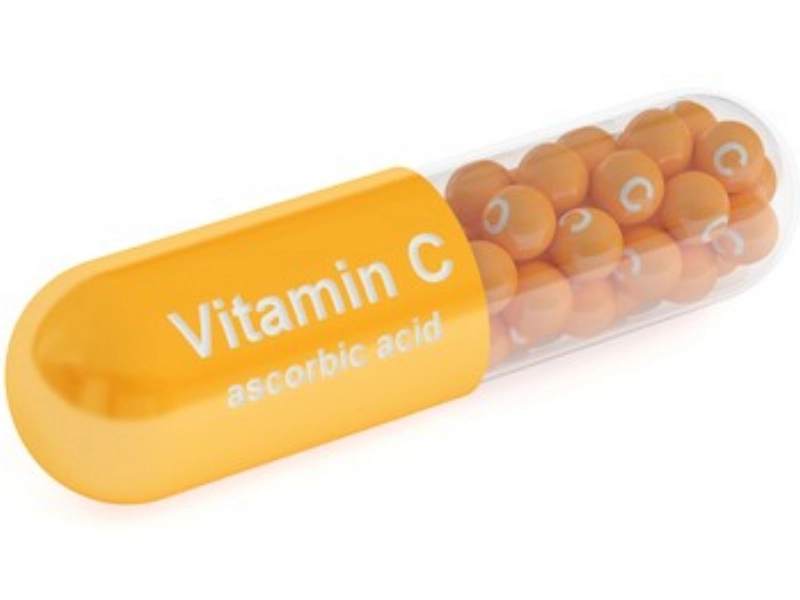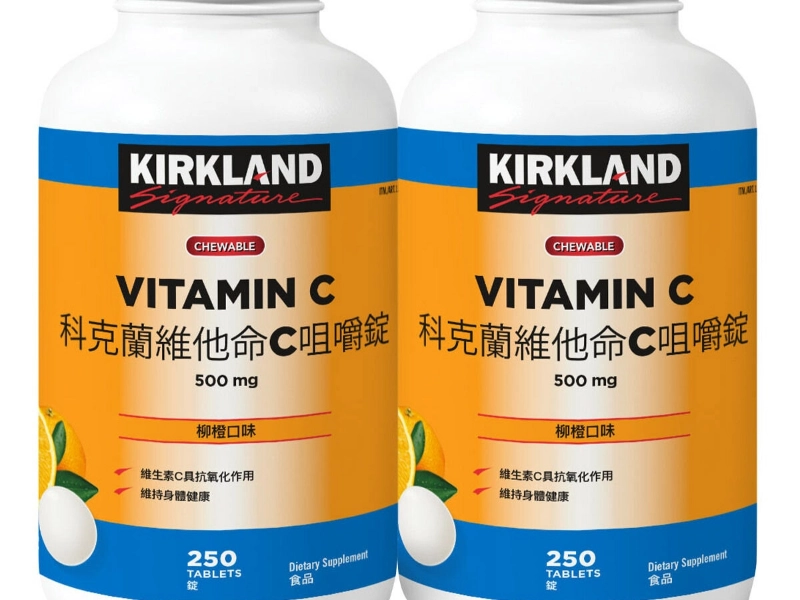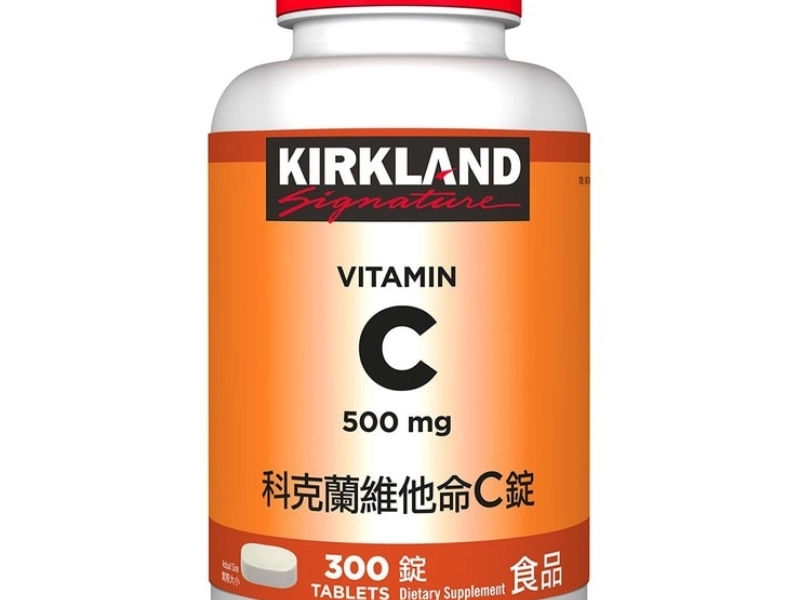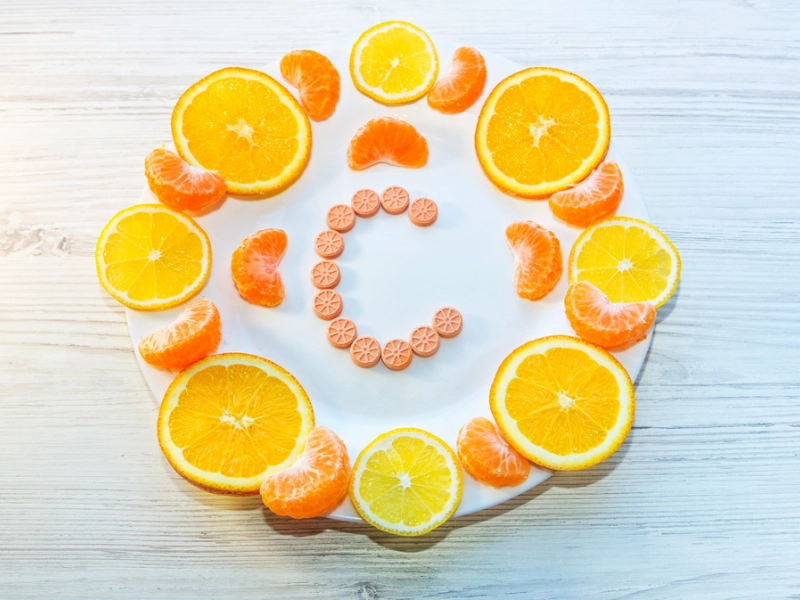An essential vitamin, vitamin C significantly affects athletes' performance and general state of health. Well-known for its immune-boosting qualities, this strong antioxidant also promotes general athletic performance and helps with recovery. The advantages of vitamin C for athletes will be discussed in this article together with its part in healing and how to include it into your diet for best effects.

 Strong antioxidant vitamin C fights oxidative stress brought on by vigorous exercise. Free radicals created by the body during exercise can harm cells and cause tiredness. Vitamin C increases general performance by neutralising these free radicals, so helping to lower muscle soreness and tiredness.
Studies of athletes who get enough vitamin C have found that they may have less exercise-induced tiredness and better endurance. For endurance athletes—runners and cyclists among others—who depend on consistent energy levels during protracted training sessions and contests, this is especially helpful. Athletes can improve their performance and stretch their limitations even more by include vitamin C into their diets.
Strong antioxidant vitamin C fights oxidative stress brought on by vigorous exercise. Free radicals created by the body during exercise can harm cells and cause tiredness. Vitamin C increases general performance by neutralising these free radicals, so helping to lower muscle soreness and tiredness.
Studies of athletes who get enough vitamin C have found that they may have less exercise-induced tiredness and better endurance. For endurance athletes—runners and cyclists among others—who depend on consistent energy levels during protracted training sessions and contests, this is especially helpful. Athletes can improve their performance and stretch their limitations even more by include vitamin C into their diets.
 Furthermore crucial is vitamin C's part in the creation of collagen. Muscles, tendons, ligaments, and cartilage all find structure from the protein collagen. Maintaining strong and flexible connective tissues is absolutely essential for athletes in avoiding injuries. Enough vitamin C supports the synthesis of collagen, which can help lower strain and sprain risk.
Moreover, vitamin C helps with healing following injuries. It accelerates tissue healing and aids in lower recovery times. Those who give vitamin C top priority in their diets may discover that they recover from injuries faster, enabling them to resume their exercise schedules earlier.
Furthermore crucial is vitamin C's part in the creation of collagen. Muscles, tendons, ligaments, and cartilage all find structure from the protein collagen. Maintaining strong and flexible connective tissues is absolutely essential for athletes in avoiding injuries. Enough vitamin C supports the synthesis of collagen, which can help lower strain and sprain risk.
Moreover, vitamin C helps with healing following injuries. It accelerates tissue healing and aids in lower recovery times. Those who give vitamin C top priority in their diets may discover that they recover from injuries faster, enabling them to resume their exercise schedules earlier.
 Given that vitamin C is abundant in many fruits and vegetables, an athlete's diet should be rather simple when including it. Well-known sources are citrus fruits like oranges, grapefruits, and lemons; other choices are strawberries, kiwi, bell peppers, and broccoli. Daily meals would benefit much from including foods high in vitamin C: smoothies, salads, and stir-fries.
Athletes who might find it difficult to satisfy their vitamin C requirements with diet alone can also benefit from pills. Nonetheless, it is always advised to get nutrients from whole foods wherever possible since they offer further health advantages beyond only vitamin C. While savouring the tastes of fresh fruit, sportsmen may reach their nutritional targets by ensuring a colourful and diverse diet.
Given that vitamin C is abundant in many fruits and vegetables, an athlete's diet should be rather simple when including it. Well-known sources are citrus fruits like oranges, grapefruits, and lemons; other choices are strawberries, kiwi, bell peppers, and broccoli. Daily meals would benefit much from including foods high in vitamin C: smoothies, salads, and stir-fries.
Athletes who might find it difficult to satisfy their vitamin C requirements with diet alone can also benefit from pills. Nonetheless, it is always advised to get nutrients from whole foods wherever possible since they offer further health advantages beyond only vitamin C. While savouring the tastes of fresh fruit, sportsmen may reach their nutritional targets by ensuring a colourful and diverse diet.
Athletes should consider timing and dosage of their vitamin C consumption in order to maximise its advantages. Eating meals high in vitamin C all day will enable the body to keep appropriate levels. According to several research, pre- and post-work vitamin C intake could improve recuperation and help to lower muscle pain. Although men's recommended daily intake (RDA) for vitamin C is roughly 90 mg and women's is 75 mg, athletes may need more since of their more physical demands. Your body should be listened to and your intake should be changed depending on your personal needs and degree of exercise. To get the right dosage for best performance and recuperation, speak with a nutritionist or doctor.
Vitamin C supports long-term health in addition to its direct advantages for sports performance and recuperation. Its antioxidant qualities support prevention of some malignancies and chronic disorders including heart disease. Athletes can guarantee they stay at their best, on and off the pitch, by promoting general health. Including vitamin C into a balanced diet improves general well-being in addition to sports performance. Athletes that give this vital nutrient top priority can enhance their training results, recover more quickly, and keep a lifestyle fit for their sports ambitions.